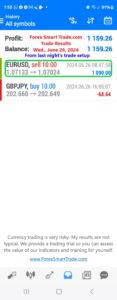Let’s see how the forex market can affect the stock market, specifically stock indexes.
When people talk about the stock market, you generally hear them using a stock market index in reference to the market’s performance.
A stock market index is simply a curated basket of certain stocks. This list of stocks is a way to get a broad measure of what’s happening in the stock market.
In this lesson, we discuss how currencies can have an effect on two specific stock indexes:
- The Nikkei 225 more commonly called the Nikkei, the Nikkei index, or the Nikkei Stock Average is a Japan stock market index that measures the stock performance of Japan’s largest 225 companies listed on the Tokyo Stock Exchange (TSE).
- The Dow Jones Industrial Average, Dow Jones, or simply the Dow, is a U.S. stock market index that measures the stock performance of 30 large American companies listed on the New York Stock Exchange (NYSE) and the NASDAQ.
Nikkei and USD/JPY
Before the global economic recession that started in 2007, when most economies suffered consecutive quarters of negative GDP growth, the Nikkei and the USD/JPY were inversely correlated.
Investors believed that the performance of the Japanese stock market reflected the status of the country, so a rally in the Nikkei led to a strengthening of the yen.
The opposite also held true. Whenever the Nikkei would drop, USD/JPY would rise as well.
When the financial crisis hit, however, the relationships just went crazy like Lindsay Lohan.
The Nikkei and USD/JPY, which used to move oppositely, now move in the same direction.
Amazing isn’t it?
Who would’ve thought that stocks would have something to do with the foreign exchange market?






